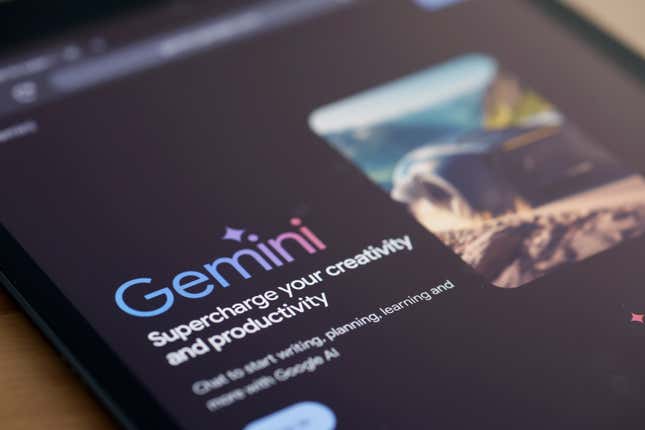
In This Story
After hitting pause on its artificial intelligence model’s ability to generate images of people, Google GOOGL-1.57% is rolling the feature out again.
On Wednesday, Google said it is bringing back Gemini’s image generation of people in “the coming days,” with early access for English-language users of its paid Gemini Advanced, Business, and Enterprise services.
“We’ve worked to make technical improvements to the product, as well as improved evaluation sets, red-teaming exercises, and clear product principles,” Dave Citron, senior director for product management at Google, said in a statement.
With its latest image generation model, Imagen 3, which powers some of its Gemini Apps, Google has apparently “made significant progress in providing a better user experience when generating images of people,” Citron said. The image generator does not allow users to generate “photorealistic, identifiable individuals, depictions of minors, or excessively gory, violent or sexual scenes.”
In February, Google paused the feature after users pointed out that Gemini was generating historically inaccurate images of people, including racially diverse Nazi-era German soldiers.
“Gemini’s AI image generation does generate a wide range of people,” Google said in a statement at the time. “And that’s generally a good thing because people around the world use it. But it’s missing the mark here.”
Google chief executive Sundar Pichai called Gemini’s responses “completely unacceptable,” and said that the company “got it wrong” in a memo to employees.
The tech giant will continue receiving feedback on the image generation tool from early users, and plans to roll it out to more users and languages, Citron said.
The company is also rolling out Gems, a feature previewed at its annual I/O developer conference in May, for Gemini Advanced, Business, and Enterprise users. Gems are supposed to enable users to customize Google’s AI model to create “personal AI experts on any topic.”